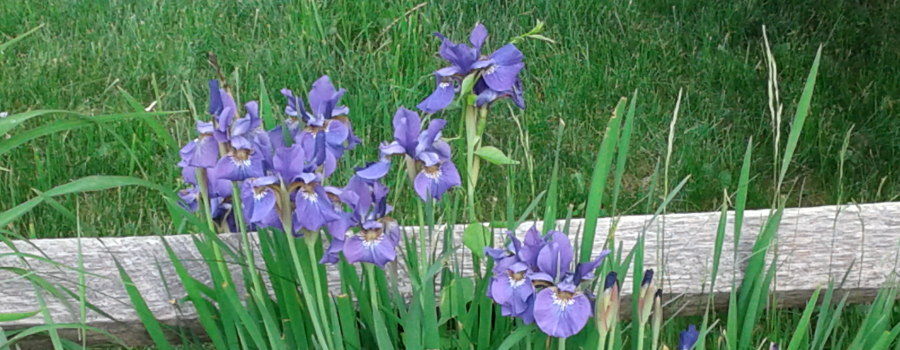Metta

Speaking Grief Documentary Screening
September 8, 2020
El poder de la conexión
September 30, 2020by Liz Sloan
The woman sitting across from me is an empty shell. Her body is stiff, her ankles are crossed. She holds her hands in her lap very carefully. Her face is a mask; beautiful, makeup carefully applied. Everything about her is careful. Controlled. If she lets down her guard, she might spin off into the darkness, and never come back.
I know this body. I was this body.
“Tell me about your son,” I say softly. “I would like to know him better.”
She does, haltingly at first. And then, like an arctic shelf breaking off the side of her heart, her reserve crumbles, and the words start to flow. Every mother needs to talk about her lost child, long after the world has run out of its patience to listen. This I know.
He was funny. He had style, and wit, and humor. She knows she’s not supposed to have favorites. But she did. He was her favorite.
This last is whispered, like we’re in confession. This I recognize too. The guilt of a mother who failed to keep her child alive.
“I don’t understand,” she says suddenly, loudly. “He had ridden that hill a million times. He’d been doing it since he was five years old. There is no way this could have happened.”
She looks at me Imploringly, for—what? Confirmation about the impossibility of this thing? Agreement that she shouldn’t have to accept it, because there is no way it should have happened?
This I recognize too.
“I don’t understand,” she says again, the anguish beneath the surface beginning to break through. “How can this be real?”
I lean forward, holding the silence a bit longer. One thing we have been trained to know: sometimes silence is better than words.
Finally, when I am sure she is finished, I say, “I remember feeling what you are feeling. The literal disbelief. Not that I don’t want to believe it, but that I truly cannot believe it.”
I re-frame everything she said, so she knows I heard her, adding enough words of my own words that she sees the connection between the two of us.
She seemingly understands. We are in this together. Her face loosens a little and the words start to flow again. The accident. The hospital. The morgue.
“How long?” she says suddenly, breaking off the recitation. And again, I know what she means without her saying.
She is yearning for a timetable. She is convinced she is not going to make it through another day, and that she shouldn’t be expected to. Humans are not built to withstand this kind of anguish. So, the question becomes, how long? How long before you don’t feel the way you feel right now? Because maybe if you have a timetable, if you know when it’s going to stop, you might be able to bear another minute of it.
Oh, how I wish I could give her the answer she wants to hear. Instead I say carefully.
“I think it’s pretty individual. For you, as early as you are, it might be better for you to think about getting to the end of this day.”
She is not sure she can.
I nod, recognizing this, too. Early on, I say, a grief counselor gave me some things that helped.
What things? She is desperate to know. And so I tell her about Meg’s three things. You identify three things you need to help you get through the end of the day, and you take steps to get them.
What are your things, I ask her? Your family? Your friends? Time alone? A walk in the woods? Writing? Crying? Petting your dog? Painting? Shopping? Working? Binge-watching stupid TV? What? As long as you don’t find it in the bottom of a bottle, you are allowed to identify anything. And insist that you get it.
We talk for a while about what, if anything, brings her the briefest flashes of comfort. She wants to know if it really will help.
I tell her I think it might. In part because she identifies them, and she takes steps to get them. It restores a modicum of control to a life that is frighteningly out of control, and is going to be for a while.
What else, she demands? What else can she do to not feel this way?
This I recognize, too. But I don’t tell her what I’ve learned about it. That it’s not about doing, but being. That at least for me, when I think about where I might get to after losing my son, it’s no longer a quest for happiness, which seems unlikely. I think instead about purpose, or peace. I will start with those and see what else the universe brings me.
What I say to this broken woman instead is:
Give yourself permission to feel whatever you feel. No excuses. No apologies. If people have trouble with it, that’s their problem. You are facing the hardest thing you will ever face, but you do not have to do it alone.
You may want to withdraw from the world—that was my tendency. But it’s generally thought that isolating yourself is not a good strategy, not for the long term anyway.
She nods, thinking about this.
It is time to bring our session to a close. We say goodbye til next week, and I watch her gather up her things and go. After she leaves, I put the room back together, get into my car and drive back to work.
This woman is in a howling wilderness. She is in complete darkness; she is walking on a white hot sun of pain. She is unique; she is every mom who has ever lost a child. She is utterly alone; she stands among a legion of others, who face the unspeakable, and have to find a way forward. This woman is me.
Every time I sit down with a grieving person, I ask myself: what hubris made you think you could do this? You are not whole yourself. Why on earth would you think you could help anybody else, especially the broken?
I have no answer. Except this woman. She keeps coming back, every week—seeking, risking, trying. If she can do it, so can I.



